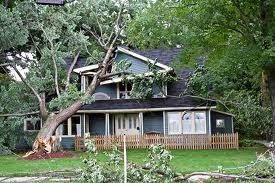 It’s been a pretty calm spring here in Pittsburgh, but Mother Nature only naps for so long! In June, West Virginia was handed some deadly flash floods which shows in the blink of an eye, your world can change.
It’s been a pretty calm spring here in Pittsburgh, but Mother Nature only naps for so long! In June, West Virginia was handed some deadly flash floods which shows in the blink of an eye, your world can change.
That’s why companies like GS Jones exist – to help you pick up the pieces after disaster strikes. However, there are also some things you can do to be sure your family is prepared for the next major weather event to hit our city. For example, hopefully you have an emergency kit with a flashlight, batteries, and first aid supplies handy. And you probably have some easily accessible blankets and bottles of water. Maybe you’ve gone as far as investing in a weather radio and other supplies, but how do you know it’s enough?
Here are seven mistakes people make when trying to prepare for a natural disaster.
- Not storing enough food
A few granola bars and bottles of water are not going to get you through several days being stranded in a home leveled by a tornado, waiting for first responders to arrive. As a general rule, FEMA suggests keeping enough nonperishable food for up to three days. Remember, if the power goes out, food in a fridge or freezer could spoil quickly, so that is not a reliable resource.
- Not storing enough water
This and the last point are the most critical. During stressful events like a natural disaster, you should drink as much water as possible to help your body stay regulated and handled the situation. That means storing one gallon of water per person per day.
- No cohesive plan
If a tornado hits your town, levels your home, and cell towers are down, how will you reunite with your family if you were at different locations at the time of the disaster? Establishing a common meeting place and plan of action can keep your family safe and prevent a panicked, rushed response. Take some time to have a plan for every possible scenario: winter storm, tornado, flash flood, etc.
This portion of the planning should also include figuring out where you will go if you can’t be in your home after a disaster. Have pets? Be sure wherever you go is pet friendly, too!
- No cash
Chances are if a major disaster struck Pittsburgh, power would be knocked out in many places. So, good luck using your debit or credit card to buy essentials. In times like these, cash is king. Keep an emergency fund with your emergency kit to pay for any necessary goods and services.
- No first aid training
During severe weather outbreaks and disaster situations, first responders will be flooded with calls for help, meaning response times could increase. Taking a simple CPR class on a Saturday morning could mean the difference between life and death for those around you during a disaster. There are also a number of first response teams in communities across the country that are always looking for volunteers to help during disasters. If you want to help, reach out to your local government offices and they can point you in the right direction.
- Don’t know your local restoration companies
Once the first responders move out, and rebuilding begins, having a reputable, high-quality restoration company to call to fix your home or business is important. This is where companies like GS Jones come in. So do some research, and find a company you trust to get you back on your feet after disaster strikes.


